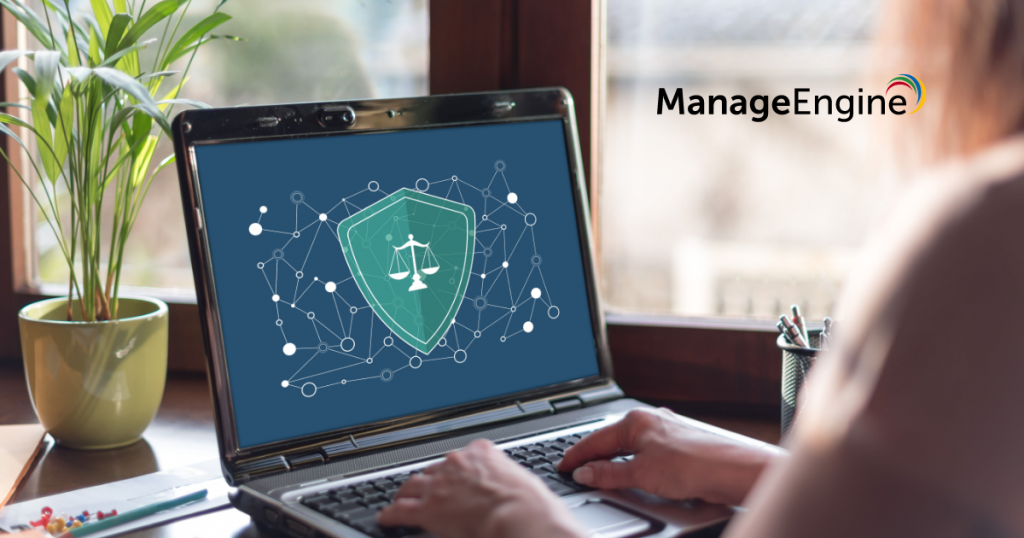Five worthy reads: Strengthening cybersecurity—exploring vital legal provisions
Five worthy reads is a regular column on five noteworthy items we’ve discovered while researching trending and timeless topics. This week we are exploring vital legal provisions to strengthen cybersecurity.

The digital environment has developed into a fertile ground for cybercrime in today's connected society. Governments all across the world have realized the need for extensive legislative protections for people, organizations, and national security due to the increase in cyberattacks. Combating cybersecurity attacks demands a multifaceted approach, including international cooperation and the incorporation of emerging technologies.
A notable example of cybersecurity legislation is the General Data Protection Regulation (GDPR), which sets tough rules for companies doing business in the European Union. Similar laws have been passed in other nations as well, including in Brazil with the General Personal Data Protection Law (LGPD) and in California with the California Consumer Privacy Act (CCPA). These laws deter cybercrime and aid law enforcement organizations in successfully prosecuting cybercriminals by providing clear legal repercussions.
This blog examines the vital aspects of cybersecurity legislation, emphasizing data protection laws, national cybersecurity enhancement acts, international cooperation, company liability, and the role of AI. By staying informed and proactive, we can collectively strengthen our cybersecurity defenses and create a safer digital landscape. We can better prepare ourselves to combat the changing cyberthreats and protect our digital environment by comprehending these legal frameworks.
Let us look at five interesting reads that delve deeper into the importance of legal provisions in the battle against cybercrime.
1. How Data Protection Laws Helps In Bridging The Gap Of Data Breach
Effective data protection laws establish guidelines for secure data handling, storage, and sharing. Compliance not only protects individuals but also fosters a culture of data security within organizations. Privacy by design principles and regular audits contribute to effective cybersecurity.
2. Cyber Defence: EU boosts action against cyber threats
The EU Policy on Cyber Defence showcases the importance of collaboration and innovation in addressing cyberthreats. Multi-stakeholder involvement, research investments, and proactive measures strengthen a nation's cybersecurity capabilities.
3. International cooperation is key to fighting threat actors and cybercrime
Cyberthreats transcend borders, making international cooperation critical. Collaborative efforts enable intelligence sharing, joint response mechanisms, and streamlined extradition processes.
4. The impact of artificial intelligence on growth and employment
The consequences of AI on the labor market are wide-ranging and complex. With the development of AI technology comes the possibility of job displacement in some sectors, changing skill requirements, and the need for upskilling and reskilling efforts. AI impacts applicant selection and performance evaluation in creative industries and in human resources. Ethical issues like income disparity, AI prejudice, and privacy are important socioeconomic concerns. Positively, AI can enable remote work and open new job options. Government policies are essential in determining how AI will affect the labor market and safeguard employees' rights.
5: The Role of Artificial Intelligence in Cybersecurity
AI offers tremendous potential in terms of augmenting cybersecurity efforts. Compliance with legal frameworks is necessary for responsible AI implementation in cybersecurity. To manage risks and obstacles while maximizing the benefits of AI, cyber laws are required. Data privacy, transparency, and algorithmic responsibility are important factors to keep in mind. Legal frameworks can lay out rules for managing data securely, barring unlawful access, and guaranteeing openness in AI decision-making. Regular assessments make it easier to spot biases and mistakes, enabling the necessary corrective actions. Robust rules can build a safe, reliable internet by balancing the advantages and dangers of AI. For AI to be used responsibly in cybersecurity, cooperation between technology and legislation is essential.
Legal rules are essential instruments in the battle against cybersecurity breaches as cyberthreats continue to evolve and pose serious hazards. A thorough cybersecurity plan must be supported by laws governing data protection, cybercrime, international cooperation, and critical infrastructure protection. However, in order to keep up with the quickly evolving cybersecurity world, it is critical to continuously update these regulatory frameworks. We can create a safer digital environment and lessen the terrible effects of cyberattacks by enforcing cybersecurity laws.
Great Article